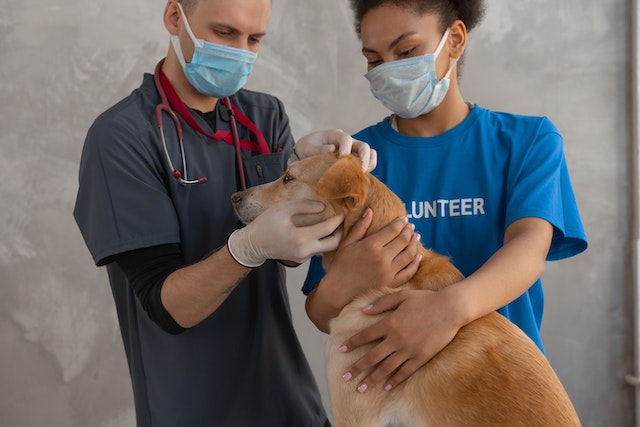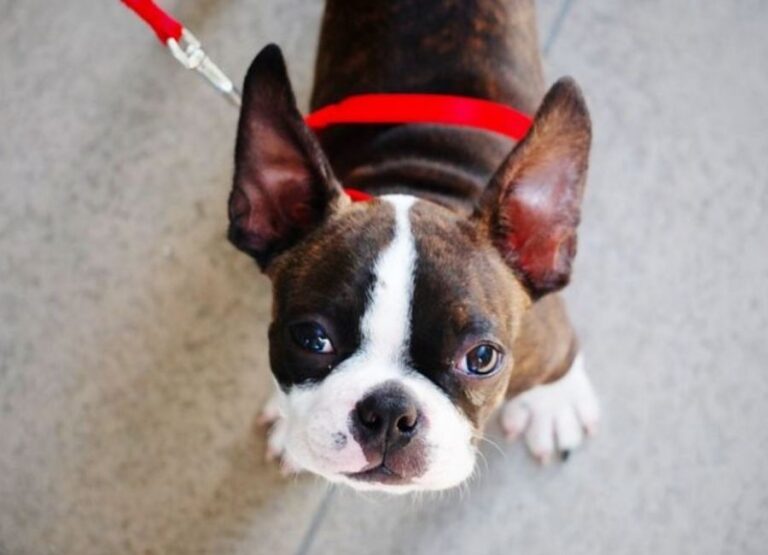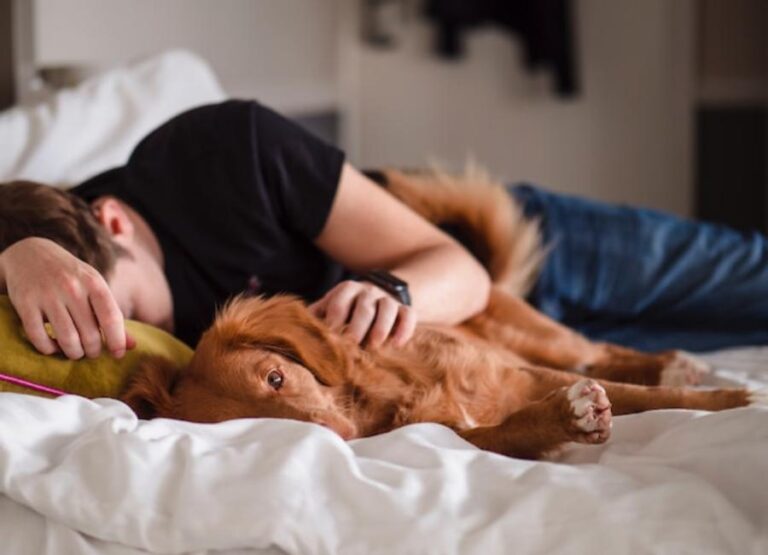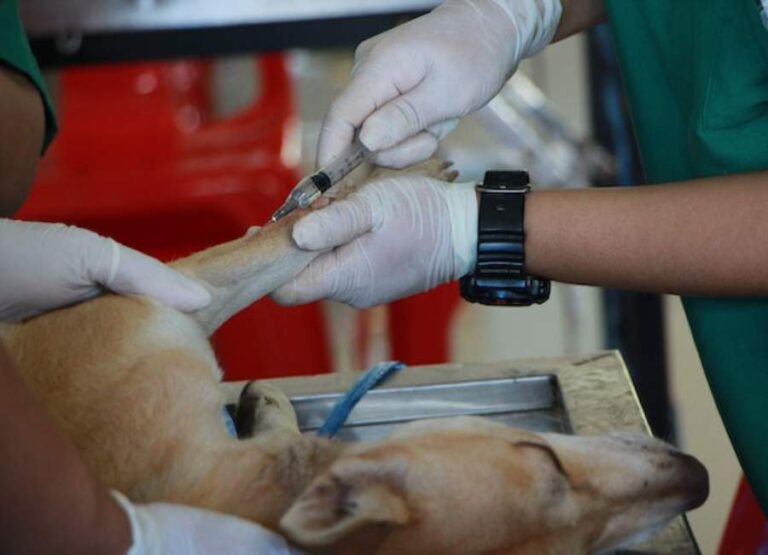9 Most Common Yorkie Stress Symptoms Explained

Yorkies can get aggressive when stressed beyond their limits, and what are the Yorkie stress symptoms let’s find out together!
I will highlight some common causes of stress in Yorkies and explain the most common Yorkie stress symptoms you should always look out for.
I will try to keep things very simple as possible so keep reading…
To deal with Yorkie’s stress, the best technique is to avoid all behaviors that cause discomfort.
Yorkie Stress Symptoms
Increased aggression, cowering, tucking of tail, shivering, whining, destructive chewing, and licking of lips are all the common Yorkie stress symptoms you should know.
Here are the most common Yorkie stress symptoms you should know:
1. Frequent cowering
Frequent cowering in the presence of other pets, strangers, or even in your presence is one of the most common Yorkie stress symptoms to note.
Cowering occurs when your Yorkie shrinks or stoops in response to something that threatens, dominates, stresses, or annoys him.
Therefore, if your Yorkie is hunkered and trembling, they’re probably nervous or terrified.
Examine the scenario and your Yorkie’s surroundings to discover if anything unusual is causing your Yorkie to get stressed.
2. Increased aggressiveness
When Yorkies are stressed they tend to grow more aggressive than usual, so keep an eye on that.
Aggression is defined as aggressive, harmful, or destructive conduct directed towards another person, whether human or animal.
Stress will most likely cause your placid Yorkies to become aggressive or snippy.
One of the most common reasons Yorkie owners seek professional aid for their Yorkie is because of aggression.
Aggressive behavior in Yorkies is a significant problem that should be discussed with your veterinarian as soon as you discover the source of the aggression.
3. Shivering
The Yorkies, like many other small dog breeds or pets, shiver when anxious or terrified when their owners leave.
This trembling is frequently accompanied by a tucked tail, cowering, and other stress-related behaviors.
If your Yorkie is shivering despite the fact that it isn’t chilly outside or indoors, it might be due to anxiety or stress.
Yorkies shake for a variety of causes.
Similarly, if any medical conditions have been ruled out, your Yorkie is most likely worried or agitated.
It’s either separation anxiety or stress if your Yorkie begins to quiver or shiver as you leave for work.
4. Increased whining behavior
Your Yorkie may whimper at any time if he is nervous or stressed about something.
If the stressor is something your Yorkie can’t escape, whining is usually followed by pacing.
Otherwise, your Yorkie can be crying and sitting about aimlessly.
It’s most likely stress if your Yorkie isn’t whining because he has to go outside or is in pain.
When dogs are agitated, they usually lose control of their natural response of whimpering.
It is, however, a sign that something is bothering your Yorkie’s surroundings.
5. Frequent tucking of tail
When your Yorkie’s tail is dragged down, it means she is nervous, worried, uncertain, or afraid.
Your Yorkie may look perplexed and agitated if the tail is kept just below the topline, which implies you should pay attention to your Yorkie.
The length of the tail is determined by the amount of fear and reinforcement conveyed by the body language.
Keep in mind that if your Yorkie’s tail is constantly tucked behind its abdomen, it’s a sign that it’s fearful, stressed, or anxious.
6. Destructive chewing
Chewing is normal behavior for Yorkies of all ages, but it all depends on what they’re chewing and why.
Chewing for Yorkies might help relieve mild stress and boredom.
Keep an eye on your Yorkie’s stress level if they start chewing on items that aren’t meant to be chewed.
Rather than yelling at your Yorkie for chewing on your belongings, attempt to figure out why they’re chewing and remedy the problem; yelling will simply make things worse.
7. Excessive licking of lips and paws
Although Yorkies lick just about everything, excessive licking of the lips and paws is sometimes seen as a symptom of stress in Yorkies.
If your Yorkie is constantly licking its lips and front paws, it might indicate that they are anxious.
Your Yorkie may also try to unwind by licking its lips or yawning, all of which are signs that he or she is agitated.
When your Yorkie is anxious, she may lick her lips and yawn. It’s generally a slower lick while they’re enjoying a tasty treat.
8. Increased self-isolation
If your Yorkie starts running away from you and hides somewhere to be alone, it’s either stressed, sick, or anxious.
Yorkies are gregarious and lively dogs. If your pet withdraws suddenly, it’s probable that it’s concerned or anxious.
Although many tiny dog breeds like being alone, too much of it might indicate a problem, such as excessive stress.
Before deciding what to do, keep an eye on your pet for any more symptoms to determine the specific problem.
9. Freezing or changes in body posture
While your Yorkie freezes or becomes rigid when you’re around, it suggests he’s worried or upset about something.
Freezing your Yorkie for no apparent reason might be dangerous to both you and your dog. You must correct the situation before it becomes out of hand.
It’s an indication that your Yorkie is stressed and won’t be able to manage the situation, and a bite might be next.
Excessive freezing in tiny dogs, such as Yorkies, is a typical sign of nervousness that should not be overlooked in real life.
How to resolve stress in Yorkies
Owners of Yorkies may stress their dogs by failing to give precise directions, staring them down, starving them, shouting at them, or punishing them harshly.
Finding out what’s troubling your Yorkie and then removing the cause of stress is the simplest way to calm them down.
Here are some typical strategies to help Yorkies cope with or prevent unneeded stress:
- Make sure you properly socialize your Yorkie.
- Make a daily working schedule and stick to it.
- More treats and engaging toys should be purchased.
- Invest in anti-anxiety products.
- Desensitize your Yorkie to stressful situations.
- Keep your Yorkie occupied throughout the day.
- Create a relaxed atmosphere.
- Make time to play and exercise with your Yorkie.





![Trauma in Dogs [Signs, Causes & Solutions] Trauma in Dogs](https://petcreeks.com/wp-content/uploads/2023/12/pexels-mikhail-nilov-7469228.jpg)
